PHNOM PENH: Advancements in digital technology have led to the creation of a new paradigm – the digital economy. While there is no set common definition, the digital economy can be thought of as the economic output or activity that comes from digital technology in the form of services or products. The digital economy has been identified and well-recognized as a new growth driver and ecosystem that can contribute to increasing economic productivity and efficiency in Cambodia, as well as across the whole region and world.
The seventh edition of the monthly Give a Day event was held on 19 August at the Cambodiana Hotel in Phnom Penh, focused on the topic “Cambodia Digital Economy and FinTech Development Landscape and Policy.” This month’s event was attended by 63 participants from various stakeholder groups within the entrepreneurship ecosystem, such as investors, the government, entrepreneur support organizations and entrepreneurs themselves.
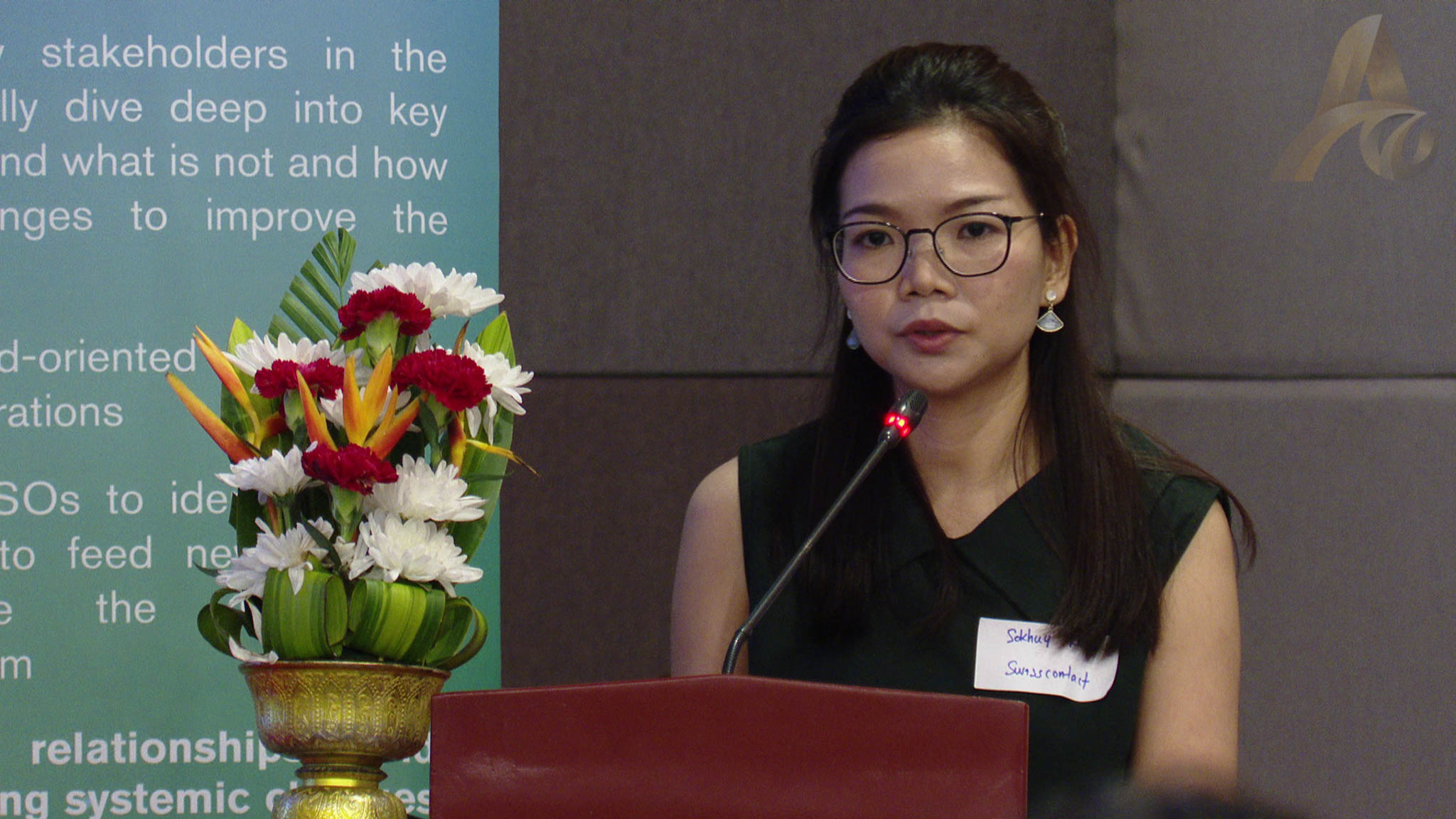
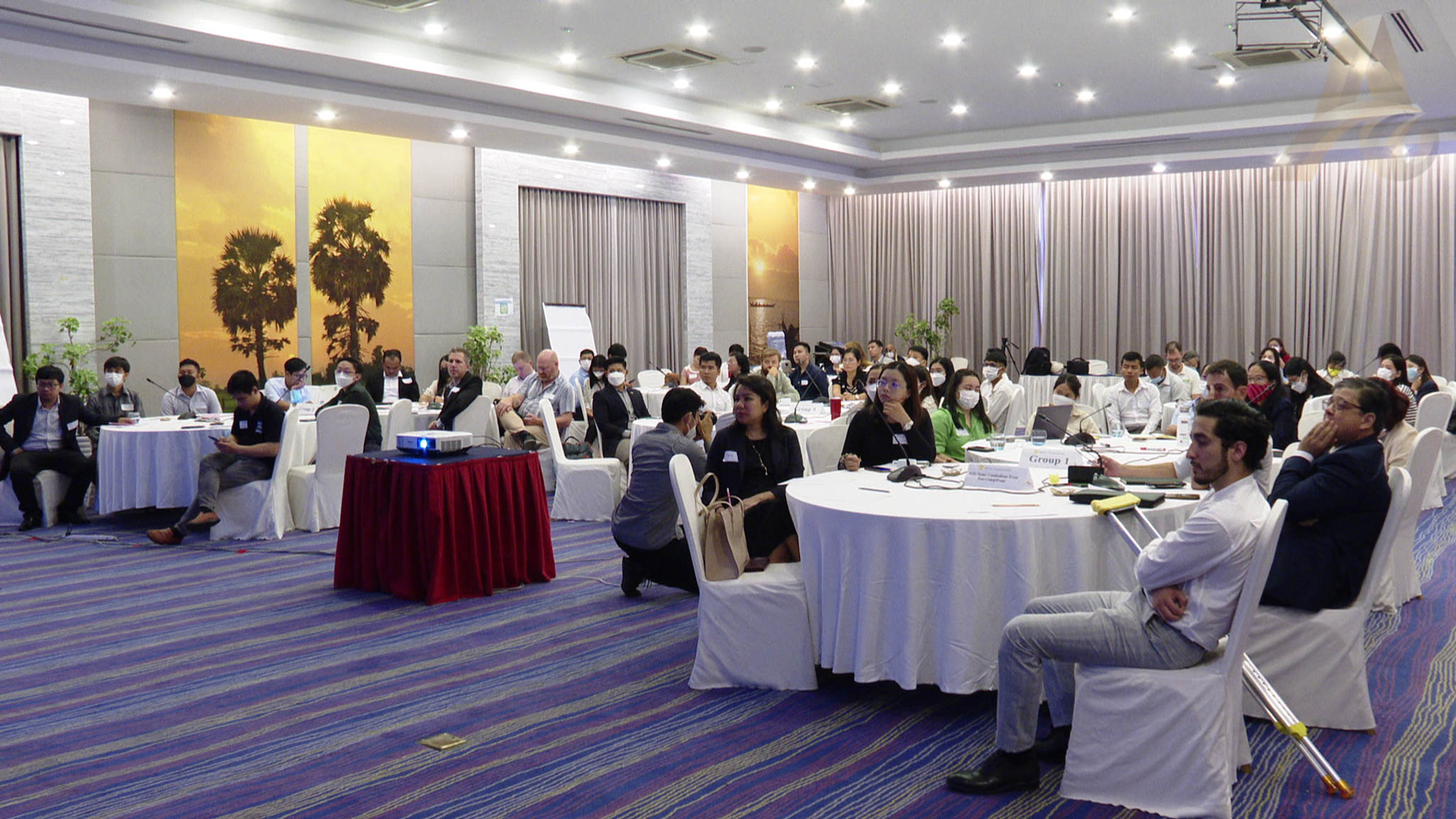
Dr. Nguonly Taing, the Executive Director of the Techo Startup Center, a government-funded startup accelerator under the innovation arm of the Ministry of Economy and Finance, was invited to speak about the Cambodian government’s commitment to building a vibrant digital economy so as to reap its benefits and, importantly, not get left behind. He provided an overview of Cambodia’s digital economy as it currently stands, the policy framework and government strategy in place to promote the digital economy further, and what entrepreneur support organizations can do to help the digital economy become a major pillar and driver of growth in the Kingdom.
In his presentation, Dr. Nguonly Taing spoke of Cambodia’s 2050 vision, which includes becoming an upper-middle-income country by 2030 and a higher income country by 2050. Experts, including the Asian Development Bank (ADB), had predicted that Cambodia would be able to achieve its 2030 goal, however, these forecasts were largely made prior to the pandemic. Therefore, he said it is imperative that Cambodia find new and diversified growth drivers to support the GDP in order to retain this vision, especially as previously reliable pillars of the economy, like tourism, have been fragile in the face of the pandemic.
“The current economy of Cambodia depends on only a few pillars, and there is a mega trend in the region, as well as around the globe, to utilize the advancements of technology to create a digital economy,” he said. “So, [we] hope that we can find a new growth driver to support Cambodia’s economy through the digital economy.”
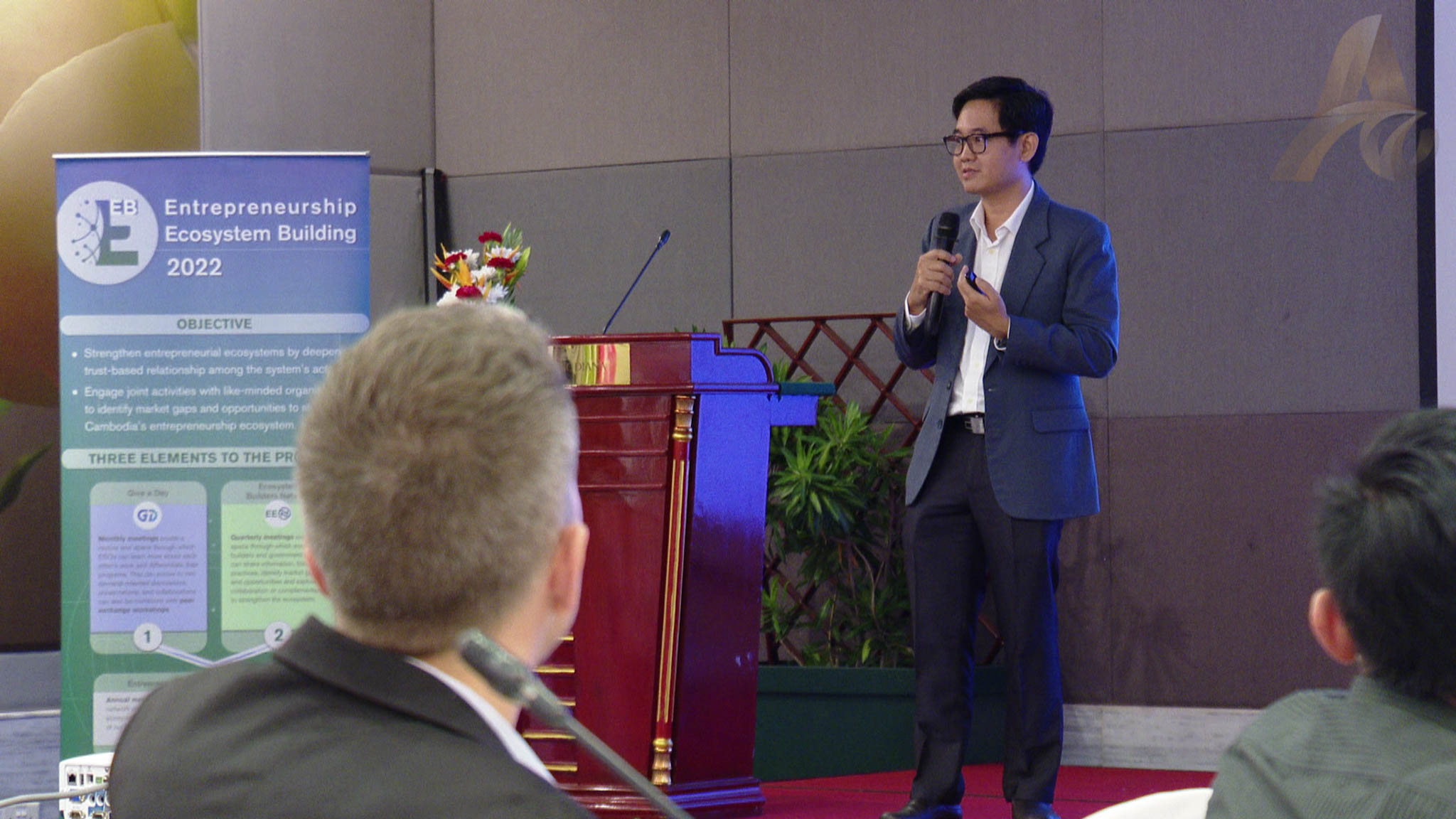
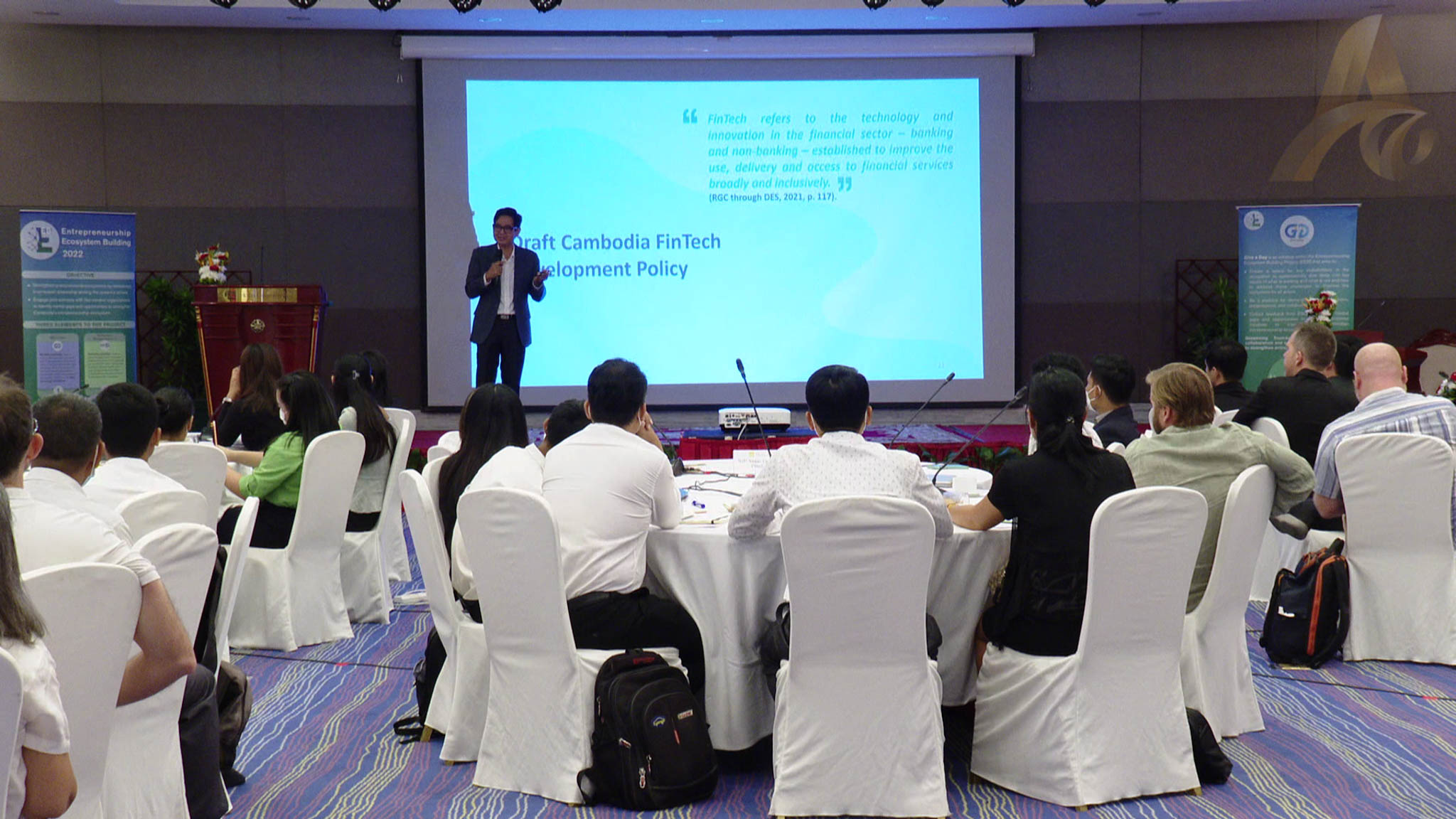
Dr. Nguonly Taing highlighted how the digital economy in Southeast Asia has only continued to grow during the pandemic, and despite any regional or global tensions. In fact, by 2030, the Southeast Asian digital economy is forecasted to reach US $1 trillion, hence Cambodia must adopt this trend now to keep up with this rapid regional development.
In order for the digital economy to be a growth driver in Cambodia, it will need to account for at least 5% of the GDP, which Dr. Nguonly Taing said he is positive can be achieved by 2025 or at least 2026, especially following the launch of the Cambodia Digital Economy and Society Policy Framework 2021-2035. This policy framework is a 15-year plan that provides guiding principles for digital transformation, including a ‘FinTech and Digital Payment Infrastructure.’
FinTech, as a sub policy, is beginning to gain more attention due to its fast growth and rising potential. Though largely only known to the public in the context of banking applications and online transactions, FinTech encompasses both banking and non-banking tech innovations in the financial sector, including blockchain technology and Web 3.0. The Cambodian government, is currently in the process of drafting the Cambodia FinTech Development Policy.
“There is no common definition for ‘FinTech’ in general, it depends on who you ask,” said Dr. Nguonly Taing. “But for the Cambodian Government we define FinTech as a technology or innovation that's used in financial services to improve access to the financial service in a broad manner.”
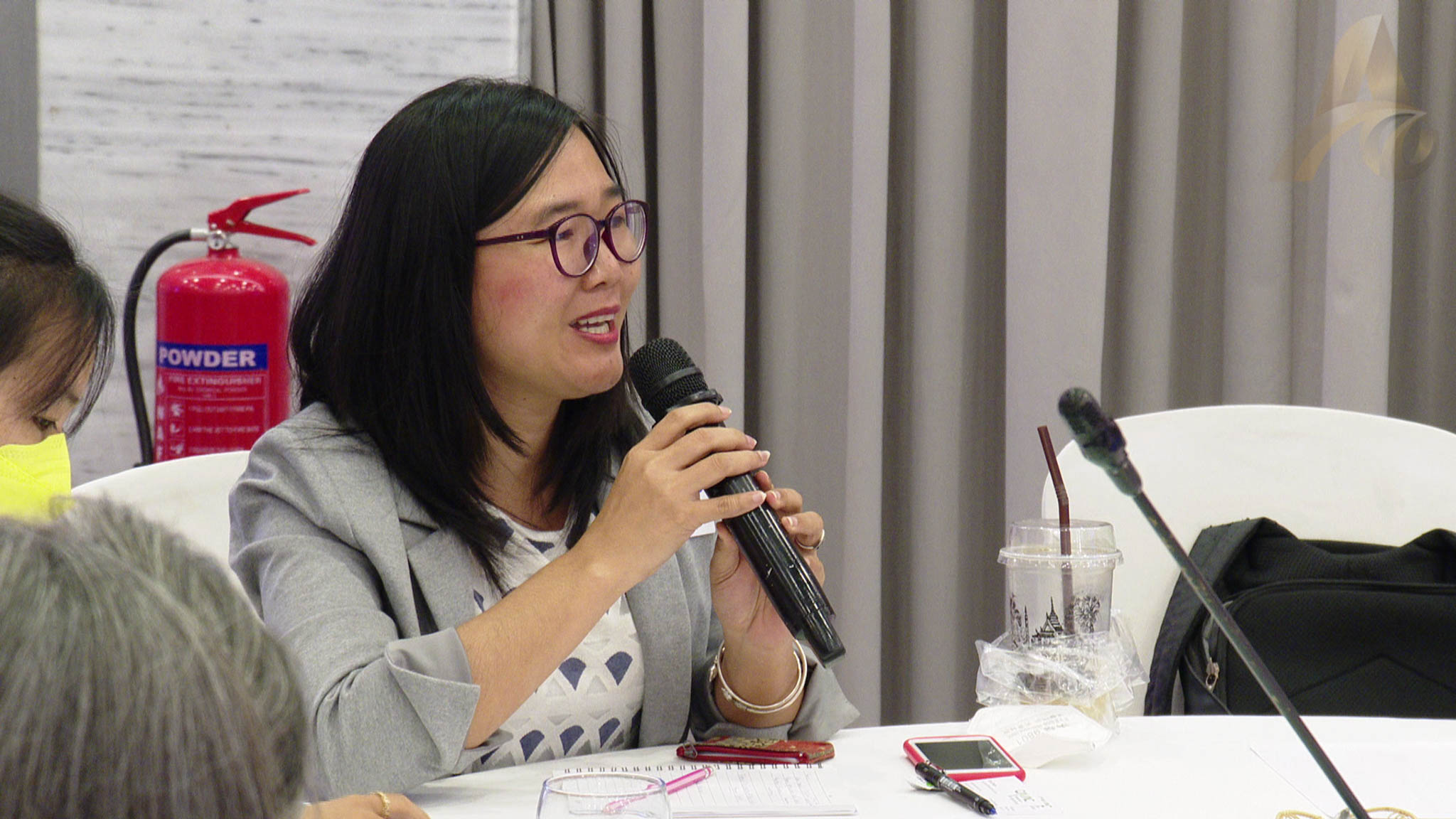
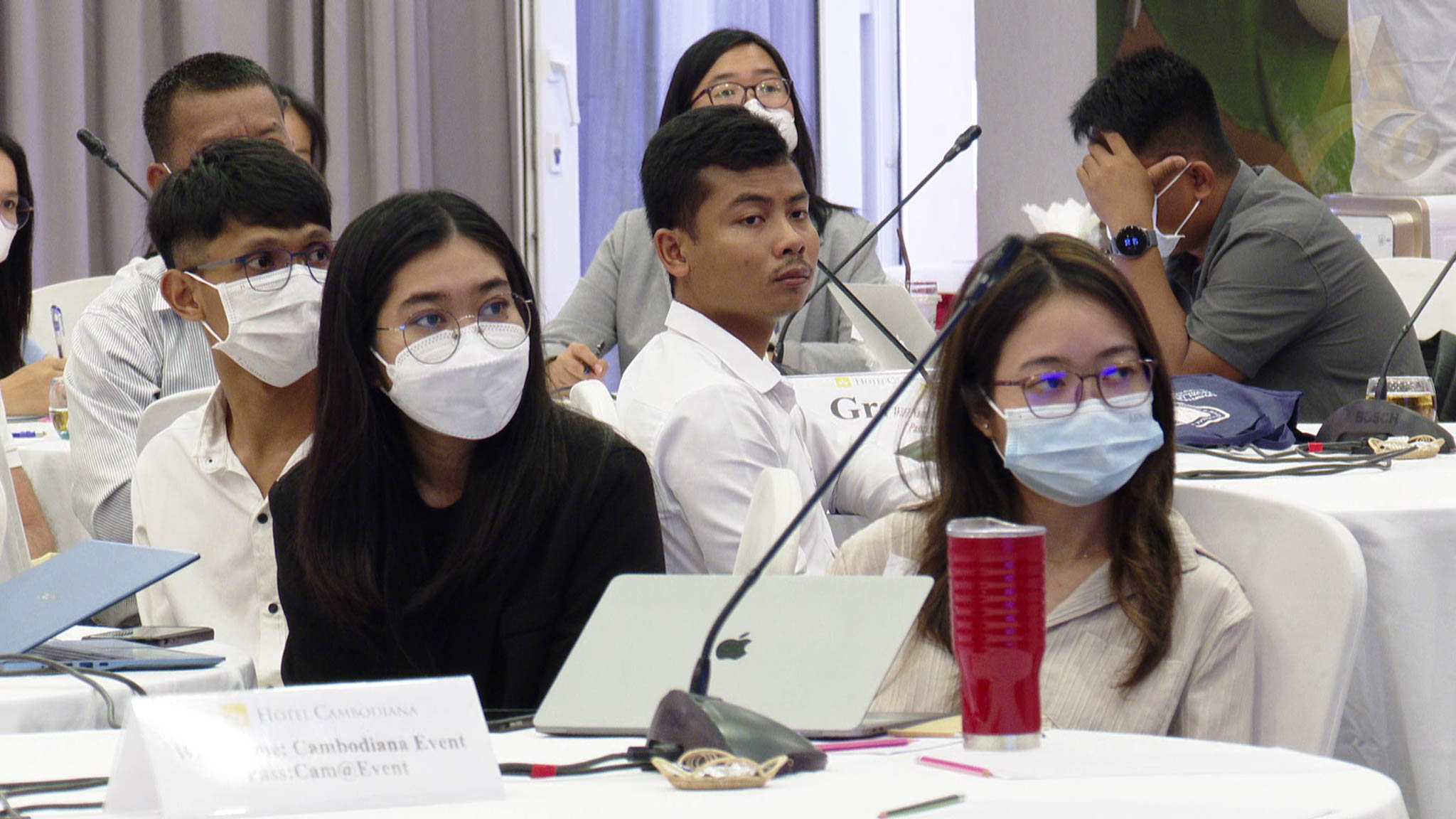
In addition to drafting policies, the government is also implementing what it calls digital enablers – digital platforms that serve as a foundation or infrastructure to support applications, digital development and business.
To better illustrate the concept, the Techo Startup Center Executive Director said, “For example, you have Nham24, [an app which] may rely on Google maps in order to provide navigation to their drivers and also pinpoint the location of stores. Nham24 cannot invent this map easily because it is a lot of investment, and without Google Maps, Nham24 cannot exist as well. In this analogy, the government is trying to build Google Maps so that other innovators, startups, can build applications and connect to this ‘digital enabler’ so that it can be easy for them to roll out their startup as well as their business operations.”
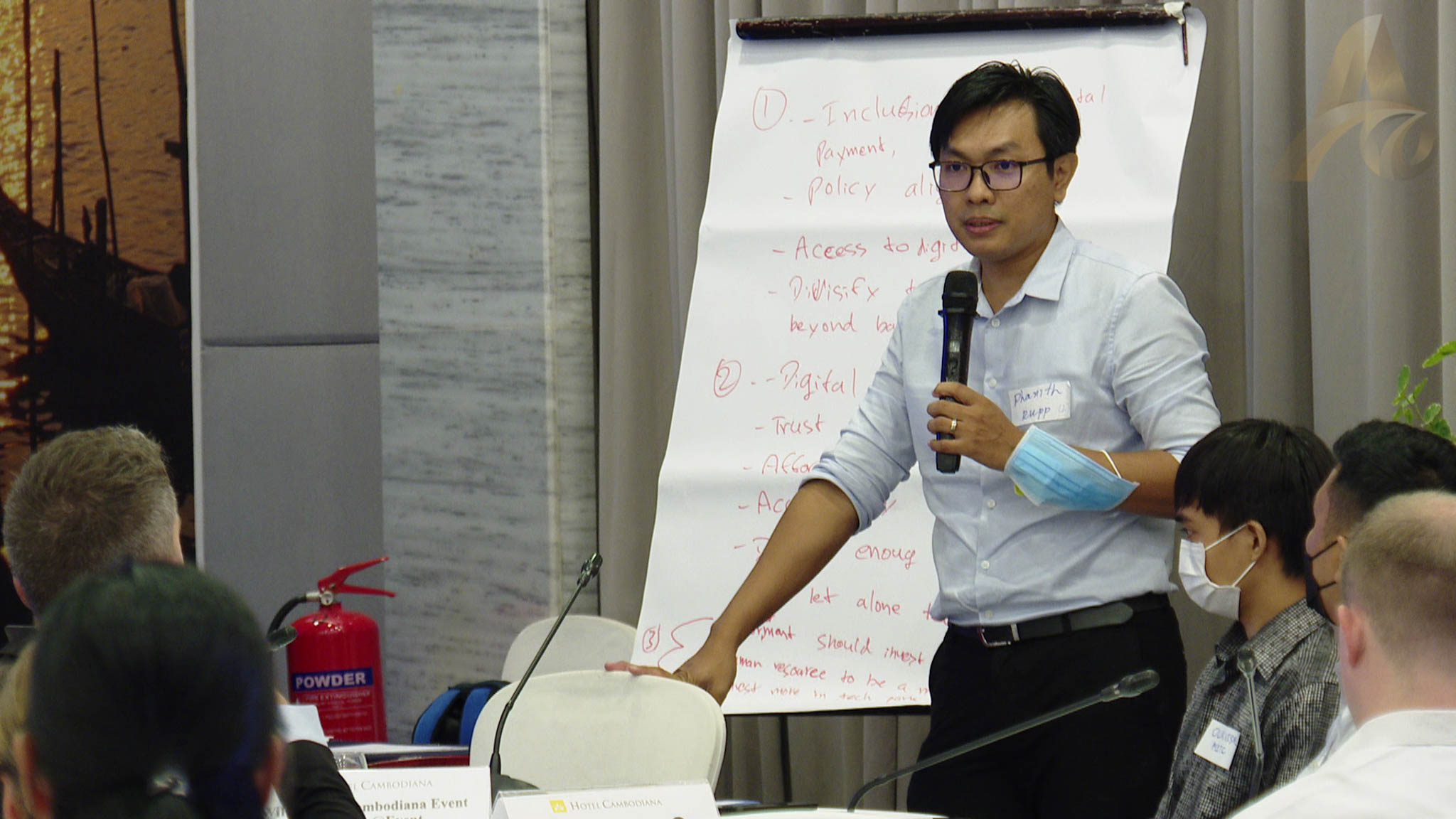
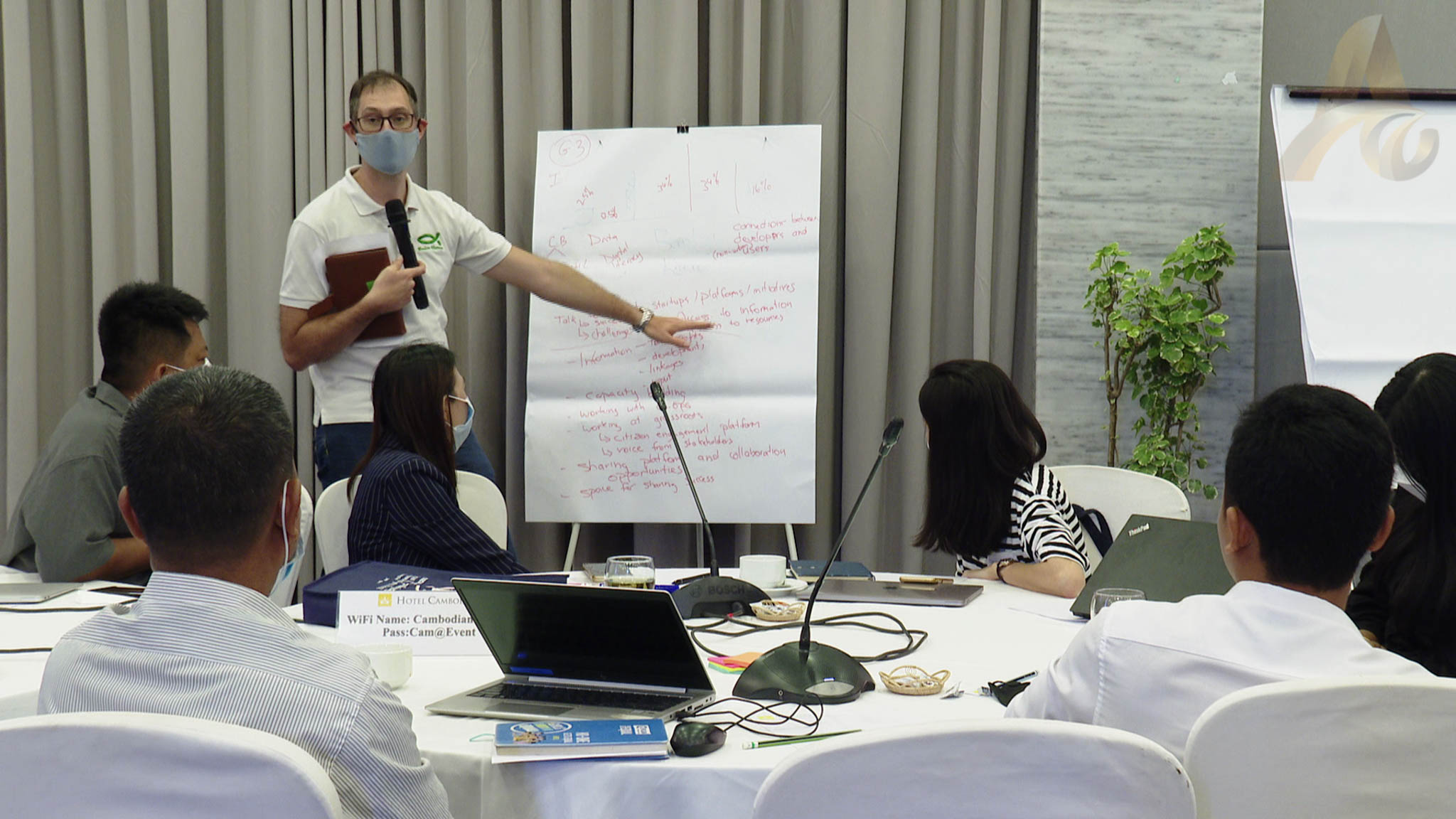
Following Dr. Nguonly Taing’s presentation, participants engaged in a breakout discussion on what challenges and opportunities stakeholders may face while trying to leverage opportunities in FinTech as well as how they can support the digital economy.
One participant, Emre Pinarci, from social venture capital Insitor, stated that he attended this event to learn more about the areas and companies his organization can invest in to benefit digital inclusion, improve financial inclusion and support Cambodia’s economic growth.
“It’s a very important area to develop the economy and to have actual impact as impact investors, we think it's really important for us to look at this,” he said. “That's why we are really willing to look for companies to invest in, that are [working in] FinTech and that are using this digital aspect.”
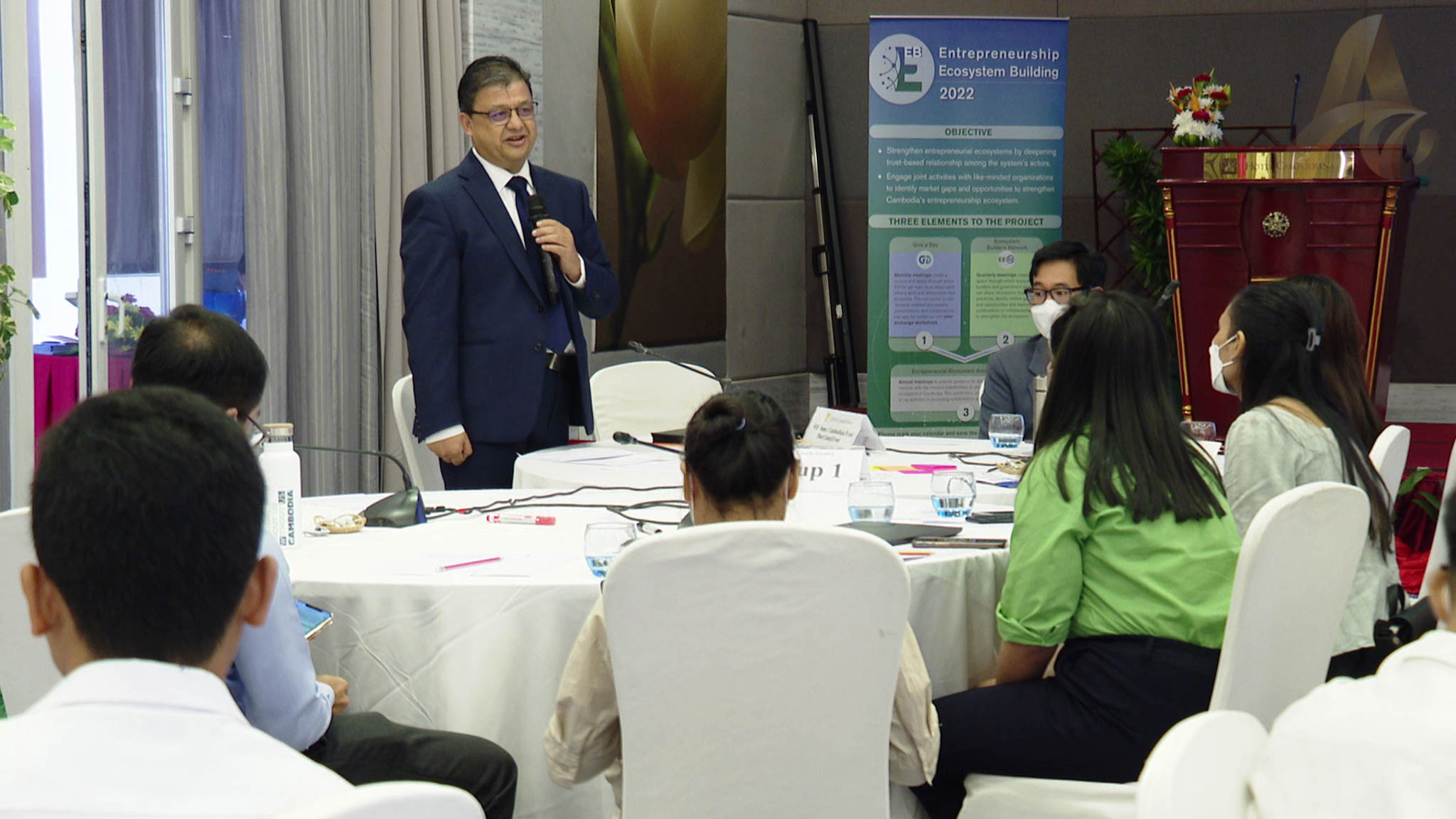
Rajiv Pradhan, the Country Director of Swisscontact, one of the facilitator organizations working to organize Give a Day, explained that this month’s topic on digital economy and FinTech was chosen because it is something that is still not fully understood by many stakeholders in the entrepreneurial ecosystem, and to also share more widely what the Cambodian government is doing to enhance this field.
“It's really important for Cambodia that the digital economy is looked at seriously, and the government is already [doing so], I'm really glad that the government is looking at it very seriously,” he said. “If investors now understand that and get prepared to help invest in the digital economy, I think it would help everyone in the sector, and the country in general.”
Give a Day is an initiative within the Entrepreneurship Ecosystem Building (EEB) Project 2022, jointly funded by Khmer Enterprise, USAID’s WE Act Project through Pact Cambodia, and Swisscontact. The initiative hopes to strengthen the entrepreneurial ecosystem in Cambodia by deepening the trust-based relationships among system actors.
The message of this month’s Give a Day to stakeholders was clear: The digital economy is growing rapidly and at a massive scale worldwide. Cambodia must adopt this major trend now in order to not be left behind. However, the government cannot make this transition alone, so all stakeholders must work together and support each other to achieve this reality.
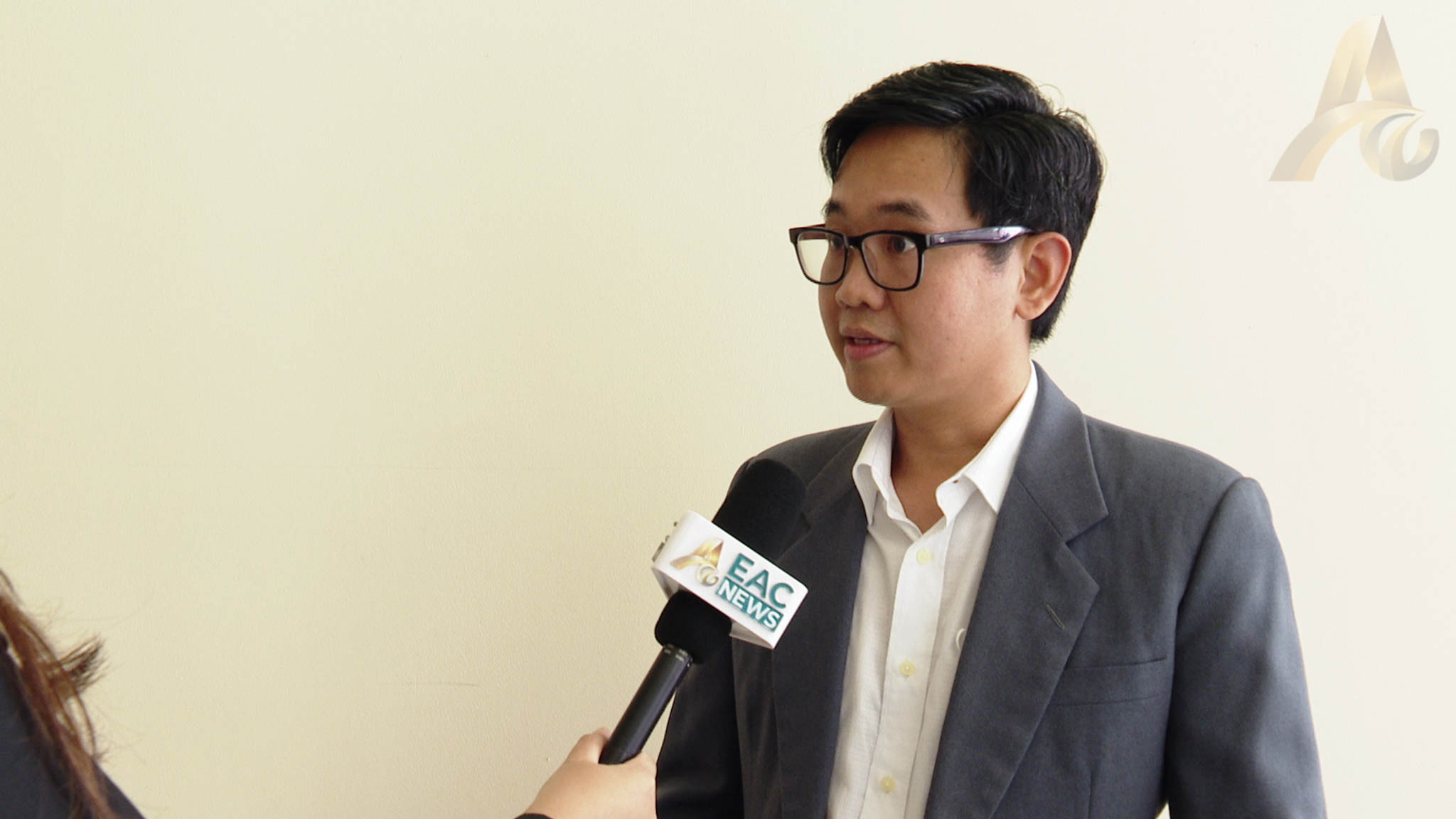
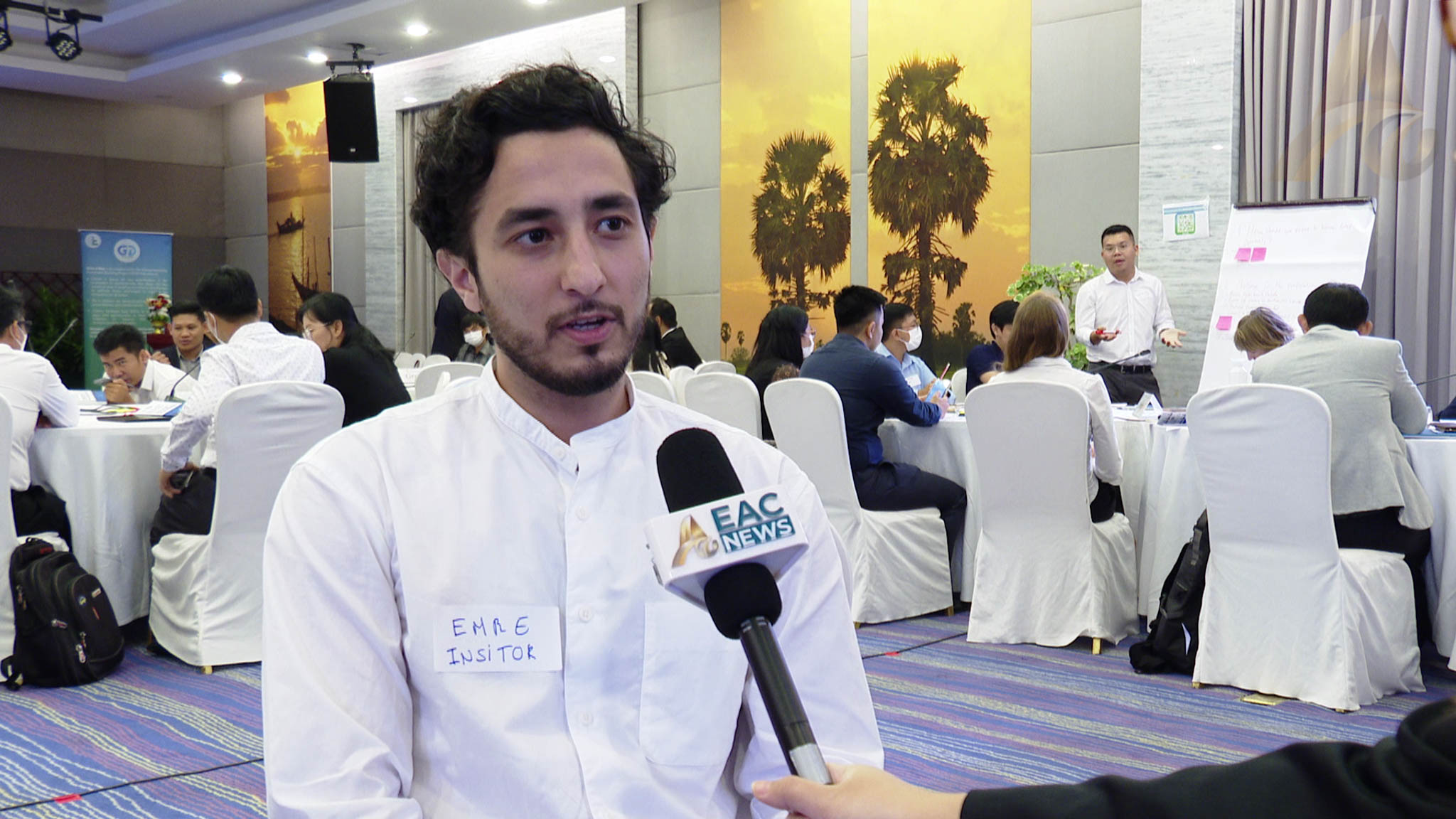
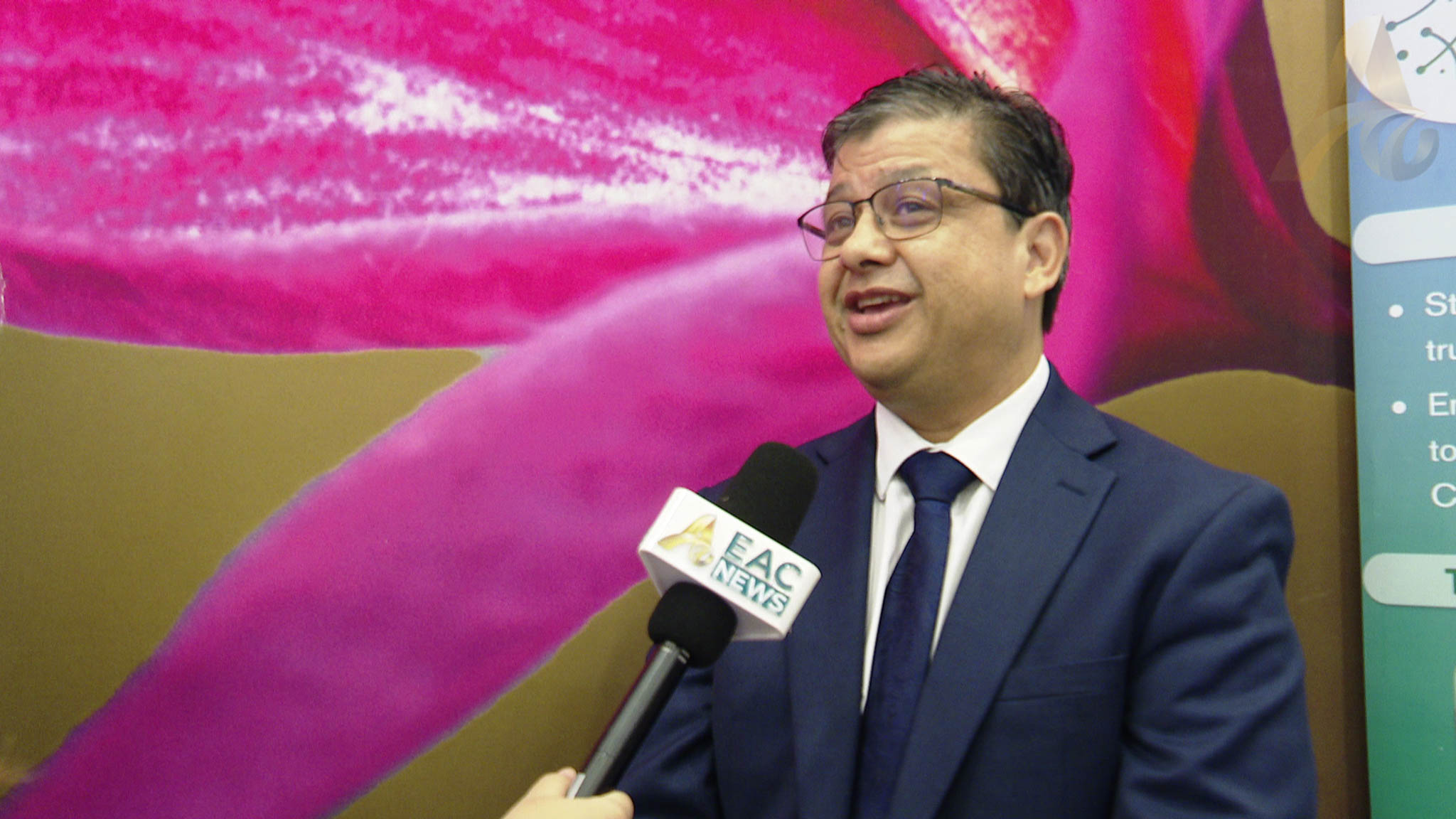
PHOTO: EAC NEWS





















